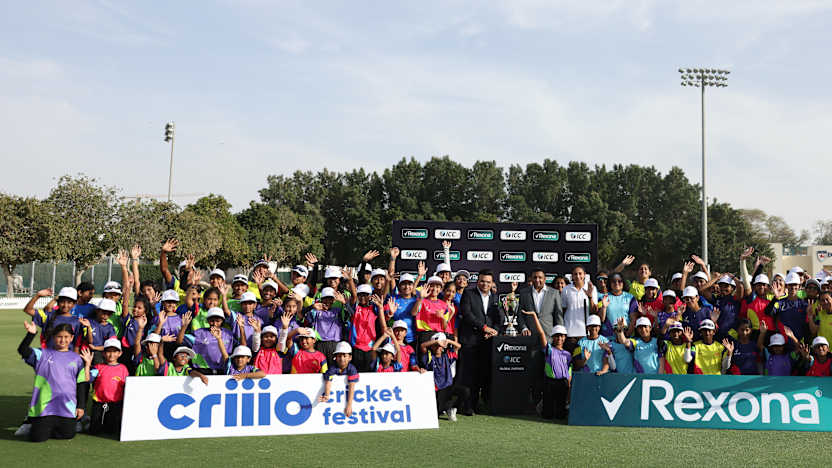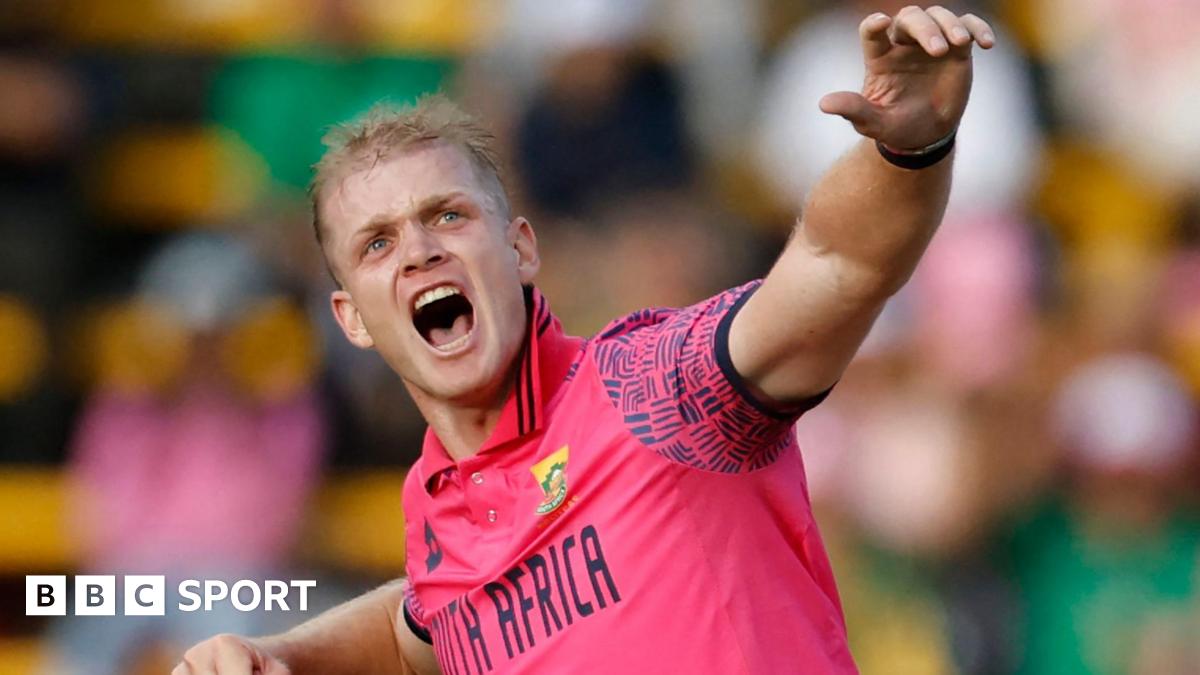The Spin | Long hops? How one local cricket club is brewing their own beer

The link between cricket clubs and beer is long and not always frothy. Some have held real-ale festivals on site, others have split over bitter disputes around bar takings, many more are kept in business by the thirst of their patrons. But very few – if any – grow their own hops. Step into the ring, East Rainton CC.
Set in an ex-mining village between Sunderland and Durham, East Rainton (formerly known as Hazard Colliery CC) dug in their first hops plant last year against the sunny south-facing wall of their clubhouse, in collaboration with the local nano-brewery Wear Beer. That name may be familiar from when the brewery hit the headlines 15 months ago, after being served a legal letter by Mercedes Benz, which objected to its logo – featuring the Lambton worm wrapped around a three-pointed red star.
It seemed unlikely that punters would muddle up the badge of a tiny brewery set up in the cellar of the Ship Isis pub in Sunderland with a huge luxury car brand, but the man behind it all, Julio Romero Johnson, wasn’t taking any risks – despite his logo being inspired by the international brigades who fought in the Spanish Civil War. He stepped away from registering the badge, but kept the logo and kept making the beer, with the dream of producing local beer out of locally grown hops.
Last summer he was approached by Rob Kitching, the volunteer secretary and groundsman at East Rainton, and a train driver for the Tyne and Wear metro in his non-cricketing life. Kitching had been one of the driving forces behind the club becoming a greener organisation, and the idea of being able to grow and drink home grown beer appealed to him greatly.
“We’d tried to do all the normal things: recycling, trying to car share to matches, adding solar panels on the roof,” he says. “Another thing was to try and source our drinks as locally as possible.”
The club already stocks local beers (very popular with members) and had a collaboration with local cider company Elvet to press the apples that grew alongside the medieval hawthorn hedgerow in the northern corner of the ground. Those went into a local blend alongside other donated apples and crab apples in the area. To add beer to the menu seemed a logical next step, although members will have to wait until the hops are gathered in September before they are able to taste the first brew to include the fruits of their own labour.
East Rainton only gained a bar two years ago – it is run by Kitching’s mum – and the addition of the solar panels, which charge on to a battery in the building, has made a huge difference. Before then, the club had been off grid. “We were limited to daylight before,” Kitching says. “We have the bar now open to the local community. There wasn’t a non-religious space in the village before either. We have community open days, founded a women’s team, all who have space to meet.” Does he have to go around pursuing people who leave the lights on like a frustrated parent? “They’re all on timers and have centralised switches so people can’t leave them on.”
The idea of sourcing things locally has proved very popular, in fact the whole process of trying to exist more sustainably as a club has been fairly trouble-free.
“To be honest, once we’d summoned up the idea, everyone was very keen on it. Half the battle is that people think it is such a chore, we’re trying to prove that it really isn’t.
“As a sport, cricket is played outdoors at the hands of the weather, why not do the best we can? We’ve got an electric mower that is charged by the solar panels, areas we’ve left wild at either side of the ground, which is a total no brainer as there is less to cut. We recycle and the different bins are well used. We’re quite a rural setting, deer come in, buzzards fly over, and we’ll be doing the bird survey [RSPB Big Garden Birdwatch] this weekend.”
The club have also planted 480 tree saplings, provided by the Woodland Trust, created a wildflower garden next to the pavilion, installed rain water storage barrels for the irrigation of the square – with the hope of turning this into a larger rainwater harvesting system in the future. It will be no surprise to hear that they were the winners of the Tackling Climate Change Award at the Durham Cricket Awards in 2023, as well as being highly commended in the Cricketer magazine’s Greenest Ground Awards 2024. That title was won by Fillongley Cricket Club in Warwickshire, whose hard work in rewilding the land and tackling the human ecology was rewarded not just by a £500 prize but a family of barn owls who took up residence at the club, one of whom was nicknamed Joe Hoot.
Back in the north east, Romero-Johnson, who is a part time civil servant when not brewing, has plans. As well as East Rainton, he has given hops to some of the local pubs, and hopes to take further cuttings to markets around Sunderland and hand them out to anyone who is interested in contributing to the brewing of a local beer. He might even find the time to go to a cricket match this summer.
You can’t help thinking that those who set up East Rainton, 176 years ago this year, would approve.
Quote of the week
Straight talking from Ebony Rainford-Brent on TNT Sport as Australia thrashed England for the fourth game in a row and retained the Women’s Ashes:
This is not a bunch of 20 year olds who have never played international cricket. There is some serious depth of experience there, the coach doesn’t hold your hand. It becomes frustrating to blame it on the management… it is more how the players hold themselves to account.”
Thomas calls time for England
Liam Thomas tumbled into the limelight in 2016 during an England Physical Disability match against Pakistan. As he rolled over in the deep while fielding, his prosthetic leg fell off, and he was caught on camera hopping over to pick up the ball and throw it in before retrieving his limb. The clip went viral.
Eight years later, and with many more matches under his belt, he has announced his retirement after England were defeated by India in the final of the PD Champions Trophy in Sri Lanka on Tuesday.
It might not have been quite the goodbye he was looking for – a comprehensive 79 run licking – but the defeat didn’t stop the praise flooding in.
“Liam has been part of the set-up since the beginning,” said England’s head of disability cricket Ian Martin. “He never gave anything less than 100% in an England shirt and his presence will be greatly missed, both as a player and a character in our dressing room.
“People will remember his fielding when his prosthetic leg fell off but he still managed to get the ball into the wicket-keeper – that determination surprised nobody in our set-up, but he deserves to be remembered for more than that. Liam is a very good wicketkeeper/batter but he’s an even better bloke. I hope he enjoys spending more time with his lovely family.”
England’s PD team will take on India again later this year, albeit without Thomas, in a seven-match T20 series in late June and early July. The teams will play under the pan-disability flag – the same format as the ECB’s disability premier league – including players with physical and learning difficulties as well as those with hearing-impairments. It is the first time two nations have played pan-disability cricket and the hope is that, if it works, it will allow the game to grow worldwide.
“Having five formats of disability cricket (PD, LD, Deaf, Blind, Wheelchair) is currently not working for disability cricket at international level,” Martin said. “Using a streamlined system of pan-disability cricket, the global game can come together and consider making necessary, bold changes to be a truly inclusive and sustainable sport for all.”
One of the England-India PD matches will be part of a double header with England women, who also play India. For Thomas, who once hoped to leave the team “in a better place than when I started,” there should be big ladle of satisfaction, not only for a career well played, but on looking behind him at a disability game on the up.
Memory lane
July 1984: Shropshire players celebrate their NatWest Trophy victory over Yorkshire. In the centre you can see Steve Ogrizovic, a handy medium-fast bowler and well-known goalkeeper who took a wicket in the match. It was a big year for him as a footballer; he moved from Shrewsbury to Coventry City for £72,500, where he went on to win the FA Cup in 1987.
Still want more?
“I back her 100%”: Sophia Dunkley refuses to blame Heather Knight for England’s Ashes failure.
England can’t cope with Australia’s depth and a whitewash looks on the cards in the Women’s Ashes, writes Geoff Lemon.
And Jos Buttler says England’s boycott of the Afghanistan fixture is “not the way to go”.
… by writing to tanya.aldred.freelance@theguardian.com
In?
To subscribe to The Spin, just visit this page and follow the instructions.
Related
‘Listen from one ear, ignore from the other’: Former India…
India's Rohit Sharma and Mohammed Shami (AP Photo) NEW DELHI: Former wicketkeeper-batter Syed Kirmani has expressed his opinion that experienced fast bowler Mo
India faces New Zealand in budding rivalry at Champions Trophy…
State AlabamaAlaskaArizonaArkansasCa
ICC and Unilever announce landmark partnership on International Women’s Day…
The two-year partnership, kicking off at this year’s Women’s Cricket World Cup in India and running until the end of 2027, marks the world cricket governing
IPL 2025: Mumbai Indians sign Corbin Bosch as replacement for…
Mumbai Indians have signed South Africa all-rounder Corbin Bosch as a replacement for his injured countryman Lizaad Williams for this year's Indian Premier Leag











